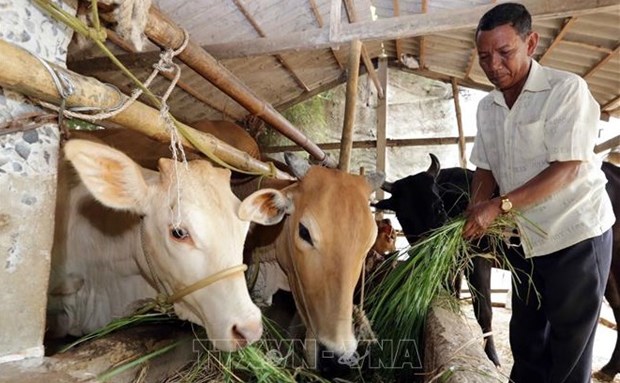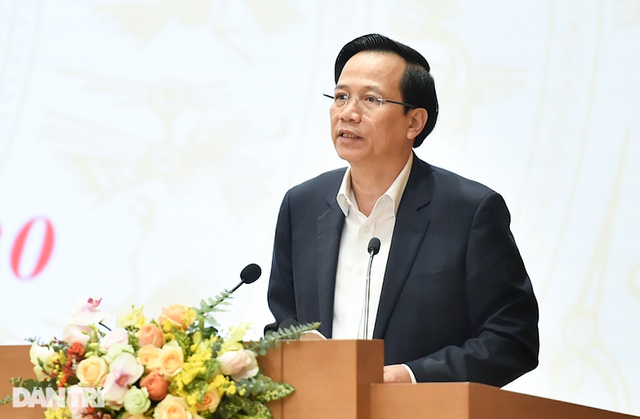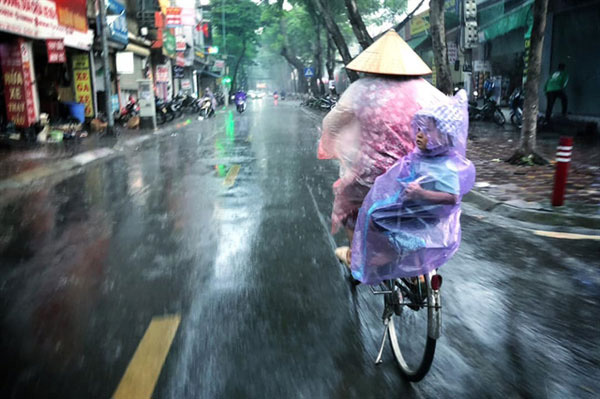- © Copyright of Vietnamnet Global.
- Tel: 024 3772 7988 Fax: (024) 37722734
- Email: [email protected]
poverty
Update news poverty
Vietnam’s multidimensional poverty rate dropping
The multidimensional poverty rate in Vietnam reduced from 9.9 percent in 2016 to 4.5 percent in last year, according to the General Statistics Office (GSO) under the Ministry of Planning and Investment.
Six million people in Vietnam escape poverty in four years
The number of poor households in Vietnam decreased by 58.12%, equal to 6 million people, in the 2016-2019 period.
Poverty still a major concern for Vietnamese people: PAPI report
 Nearly a quarter of 14,138 randomly-selected citizens across 63 provinces and cities in Vietnam said poverty was their greatest issue of concern last year.
Nearly a quarter of 14,138 randomly-selected citizens across 63 provinces and cities in Vietnam said poverty was their greatest issue of concern last year.
Large families in Quang Ngai mired in poverty
VietNamNet Bridge – Ho Van De, a 54-year-old man in a small and remote village in the central province of Quang Ngai, is known as the father of the largest family in Tra Quan Commune.
More coal plants will deepen - not cut - poverty, researchers warn
Building just a third of planned new coal-fired power plants around the world would push hundreds of millions of people into poverty as it accelerates climate change past an agreed limit of 2 degrees Celsius of warming,
World Bank loans Việt Nam $150m
The World Bank has approved a loan of US$150 million to Việt Nam to improve local development policies related to economic management and competitiveness.
Vietnam sees population ageing
VietNamNet Bridge – The population of Vietnam started ageing in 2011 and it took the country 17-20 years to have an ageing population, much shorter than in developed countries.
PM wants most to have health insurance by 2020
VietNamNet Bridge – More than three quarters of the population are expected to be covered by health insurance by 2020.
Many Mekong farmers still in poverty
VietNamNet Bridge – Many farmers in the Mekong Delta are still living in poverty and finding it hard to own a home though they have contributed significantly to raising the nation’s rice, fruits and seafood production.
Industrial park workers struggle
Workers at industrial parks in HCM City continue to face difficulties in accommodations, income, education and health services for their children, a city official has said.
Climate change to hit urban poor the hardest
VietNamNet Bridge – The urban poor are often the most vulnerable to the impacts of climate change in Viet Nam, and housing insecurity for the urban poor is a key dimension of poverty.
Land shortages deepen ethnic cycle of poverty
VietNamNet Bridge – Lack of land and few opportunities to work in non-farm jobs are pushing many ethnic families deeper into poverty.
Social News Headlines 7/5
Killer skin disease blamed on bad rice; Ha Noi encourages firms to sign up for insurance plans; Doctors warn of infectious diseases this summer; Dengue fever threat in Ha Noi; Search begins for man missing at sea
Nearly 2,000 people become poor after floods in Quang Ngai
VietNamNet Bridge - After the historic floods, nearly 2,000 people lost their entire assets and become poor people, causing concern for the local authorities.
PM voices gratitude for ODA, vows prudent management
VietNamNet Bridge – Prime Minister Nguyen Tan Dung yesterday (Oct 17) affirmed the Government's gratitude and sound management of official development assistance (ODA) from the international community.
Vietnam sees 20.7 percent drop in poverty levels
According to the World Bank Poverty Assessment 2012 report based on new standards, the poverty rate in Vietnam has fallen from 58 percent to 20.7 percent in the past twenty years.
Corruption seen on the rise, global study finds
More than half of respondents in a global corruption survey released Tuesday think that graft has worsened over the past two years, and a quarter reported having paid officials a bribe in the last 12 months.
Farmers struggle against “shocks”
The panorama of agriculture and the rural is grey and bleak. Farmers have to "tighten their belts" because their income is decreasing since they suffer more "shocks" from natural disasters, epidemics and market fluctuations.
Hydropower plants exchanged for poverty and hunger
Local people have to pay a heavy price for the hydropower plants arisen in their homeland. They have been leading unstable lives with the modest average income of VND7.2 million per annum.
The tragedy of the poor who are not recognized as poor
VietNamNet Bridge – The rural poverty rate is falling very fast. Indeed, farmers are mandatorily out of poverty, but their lives do not get better in fact.



















